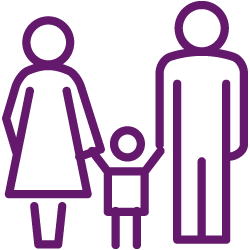New research has suggested that children who spend their time divided between parents enjoy better mental health.
In the largest study ever undertaken in Norway, The Regional Centre for Child and Youth Mental Health and Child Welfare (RKBU Vest) in Bergen looked at the different living arrangements for 7,770 children between divorced parents. The arrangements for the children were considered including details of the amount of time they had spent with each parent and the childrens’ mental health.
It was found that children who enjoyed shared care arrangements between their parents enjoyed better mental health than those living with stepfamilies or single parents. Furthermore it was found that children who had shared care arrangements between their parents did not have more mental health problems than young people living with both of their (non-divorced) parents.
The study was undertaken as a result of a lack of information in relation to how young people/children adapt after the breakdown of their parents’ relationship and their new living arrangements between parents.
This research further proves that, during the breakdown of a marriage, it is vital to make arrangements as amicable as possible, particularly where there are children involved.
Shared care arrangements offer the chance for children to spend equal amounts of time with both parents following a divorce or separation. The agreement can set out which days the children will spend where and will provide an element of routine at a time which can be quite unsettling for all involved. It doesn’t necessarily have to lay out equal time with each parent but arrangements that suit both parents and the children too.
If you would like to discuss your divorce proceedings and the details of shared care arrangements with a family law specialist, speak to Farleys’ family law department on 0845 287 0939 or submit your enquiry via our online contact form.









